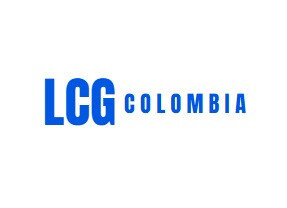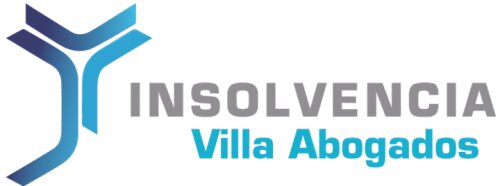Best Land Use & Zoning Lawyers in Bogota
Share your needs with us, get contacted by law firms.
Free. Takes 2 min.
Free Guide to Hiring a Real Estate Lawyer
List of the best lawyers in Bogota, Colombia
About Land Use & Zoning Law in Bogota, Colombia
Land use and zoning law in Bogota governs how land and buildings can be used and developed within the city. This set of regulations aims to ensure sustainable urban growth, protect the environment, manage public spaces, and harmonize private and public interests. The Bogota City Council, together with local planning departments, establishes guidelines through the Territorial Ordering Plan (Plan de Ordenamiento Territorial, POT) and subsequent decrees. These rules determine land uses such as residential, commercial, industrial, and mixed-use, as well as building densities, occupancy rates, construction permits, and environmental obligations.
Why You May Need a Lawyer
You may need the assistance of a lawyer specializing in land use and zoning in Bogota for several reasons. Legal guidance is essential if you are buying, selling, or developing property and want to ensure compliance with zoning laws. Common situations include seeking building permits, changing land use, resolving boundary disputes, facing sanctions or fines for unauthorized construction, objecting to development decisions by authorities, or navigating expropriation processes. An experienced lawyer can help interpret complex zoning codes, represent your interests before municipal or judicial authorities, and minimize risks associated with non-compliance.
Local Laws Overview
Bogota’s zoning and land use regulations are primarily established by the Territorial Ordering Plan (Plan de Ordenamiento Territorial - POT), which is periodically updated. The POT divides the city into different zones with specific uses, density limits, environmental restrictions, and infrastructure requirements. Key aspects of local laws include:
- Zoning classifications: Designations for residential, commercial, industrial, institutional, recreational, and mixed-use areas
- Permitted and prohibited uses: Specific activities allowed or restricted within each zone
- Building regulations: Rules covering height, area, setbacks, parking requirements, and green spaces
- Environmental requirements: Protection of wetlands, urban parks, and environmental corridors
- Public consultation: Some urban development projects must go through socialization and public participation processes
- Licensing procedures: Requirements and steps for obtaining construction, environmental, or use-change permits
- Sanctions and enforcement: Penalties for unauthorized construction, illegal land subdivision, or breach of environmental obligations
The main local authorities involved are the Secretaría Distrital de Planeación, Curadurías Urbanas, and the Office of the Mayor, as well as local environmental agencies.
Frequently Asked Questions
What is the POT and why is it important for land use?
The POT, or Plan de Ordenamiento Territorial, is the main regulatory instrument in Bogota for urban planning. It dictates how the city grows, designates land uses, and sets guidelines for development and environmental protection.
How can I check the zoning of a property in Bogota?
You can consult the zoning classification through the Bogotá Mayor’s Office or the Secretaría Distrital de Planeación. Properties are assigned land use codes that determine permitted activities and restrictions.
What permits do I need to build or modify a structure?
Most construction, modifications, or use changes require a building permit (licencia de construcción) issued by a Curaduría Urbana, after verifying compliance with all zoning and regulatory requirements.
Can I change the use of my property from residential to commercial?
Use changes are possible but subject to zoning codes and POT regulations. An application must be submitted, and approval is not automatic. Some neighborhoods strictly prohibit use changes.
What happens if I build without the correct permits?
Unauthorized construction can result in administrative sanctions, fines, forced demolition, or even criminal charges. Regularization is sometimes possible, but penalties usually apply.
How do I appeal a zoning or land use decision?
Affected parties can file administrative appeals with the relevant municipal authorities or, in some cases, seek review by judicial courts if administrative remedies are exhausted.
Are environmental protections integrated into zoning laws?
Yes, zoning in Bogota considers protected areas like wetlands, riverbanks, and forests, establishing strict limitations or prohibitions in these zones to preserve ecological balance.
What agency issues construction licenses in Bogota?
Construction licenses are granted by one of the four Curadurías Urbanas, which are autonomous offices authorized by the city for this purpose.
Can land be expropriated for public projects?
Yes, land expropriation may occur for public infrastructure, social interest projects, or environmental reasons, but owners are entitled to fair compensation and due process.
How can I resolve a boundary or land use dispute with neighbors?
It is advisable to seek legal advice. Mediation or conciliation with local authorities can sometimes resolve disputes, but litigation may be necessary in complicated cases.
Additional Resources
For further information and official guidance, the following entities are relevant to land use and zoning issues in Bogota:
- Bogotá Mayor’s Office (Alcaldía Mayor de Bogotá)
- Secretaría Distrital de Planeación (District Planning Secretariat)
- Curadurías Urbanas (Urban Curators Offices)
- Superintendencia de Notariado y Registro
- Secretaría Distrital de Ambiente (District Environmental Secretariat)
- Instituto de Desarrollo Urbano (IDU) for public infrastructure
- Local Bar Associations and legal aid clinics specializing in urban law
Next Steps
If you require legal assistance related to land use or zoning in Bogota, start by gathering all relevant property documents, such as title deeds, prior licenses, and official correspondence. Contact a legal professional with experience in urban or administrative law for a detailed review of your case. Many legal experts offer initial consultations to assess your options, propose solutions, and represent you in front of the appropriate authorities. You can also reach out to the local planning office for information, but always consider professional legal support to protect your interests and navigate complex zoning regulations.
Lawzana helps you find the best lawyers and law firms in Bogota through a curated and pre-screened list of qualified legal professionals. Our platform offers rankings and detailed profiles of attorneys and law firms, allowing you to compare based on practice areas, including Land Use & Zoning, experience, and client feedback.
Each profile includes a description of the firm's areas of practice, client reviews, team members and partners, year of establishment, spoken languages, office locations, contact information, social media presence, and any published articles or resources. Most firms on our platform speak English and are experienced in both local and international legal matters.
Get a quote from top-rated law firms in Bogota, Colombia — quickly, securely, and without unnecessary hassle.
Disclaimer:
The information provided on this page is for general informational purposes only and does not constitute legal advice. While we strive to ensure the accuracy and relevance of the content, legal information may change over time, and interpretations of the law can vary. You should always consult with a qualified legal professional for advice specific to your situation.
We disclaim all liability for actions taken or not taken based on the content of this page. If you believe any information is incorrect or outdated, please contact us, and we will review and update it where appropriate.















